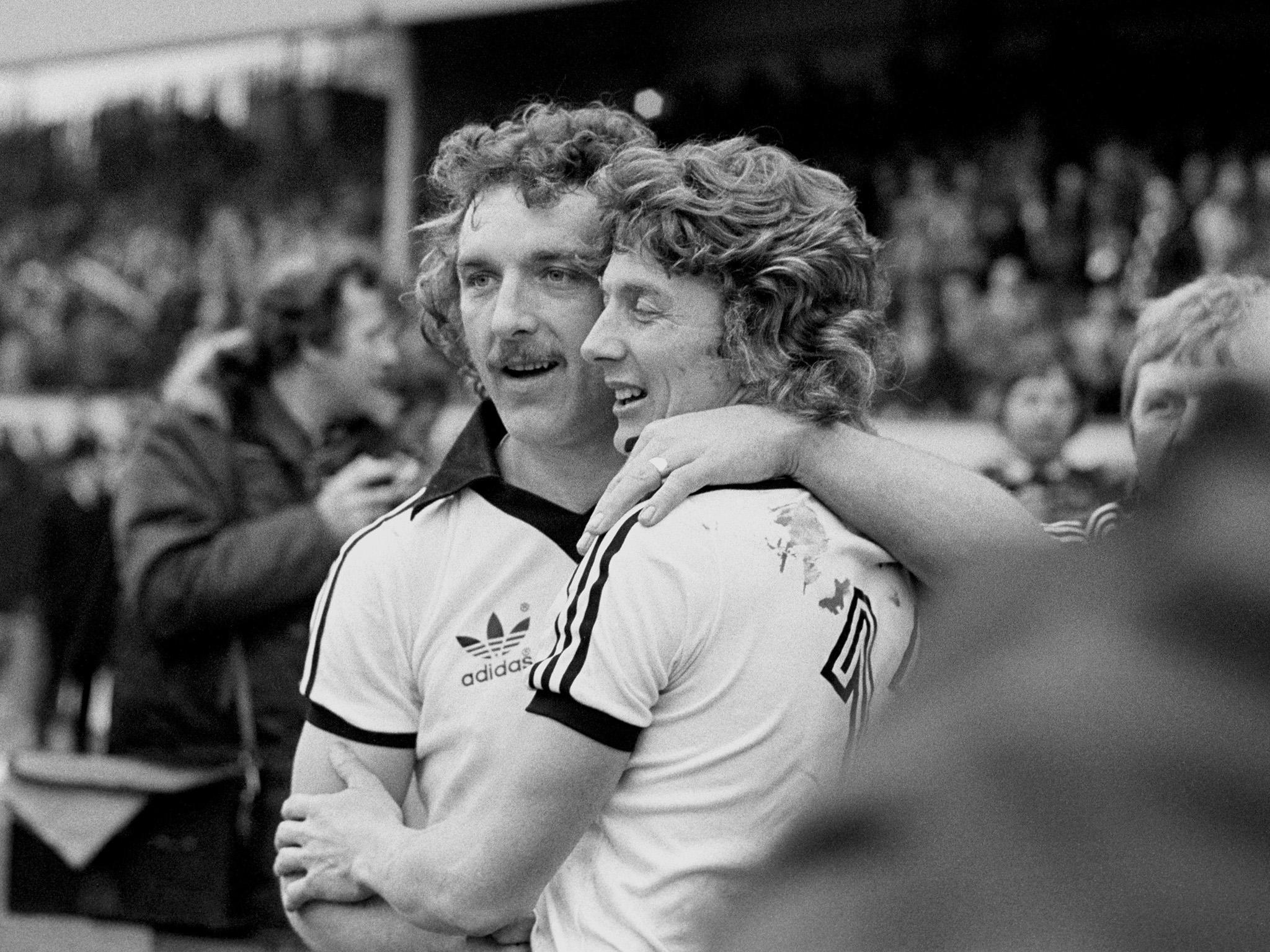Kevin Beattie: Footballer who played for England but was forced into early retirement by injury
He suffered hardship in his later years having played at the top level for nine seasons in his youth

No less an authority than Sir Bobby Robson, an England player and manager, once hailed Kevin Beattie as the best English footballer he had seen. The Ipswich Town and England defender was also one of the unluckiest.
Beattie, who has died of a suspected heart attack aged 64, was dogged by misfortune and injury throughout his playing career. They restricted him to just nine international caps and forced him to withdraw from numerous squads when Don Revie and Ron Greenwood respectively had charge of the national team.
He performed at the top level for nine seasons before persistent knee problems forced him to retire for the first time, departing with a single medal gained when Ipswich beat favourites Arsenal in the 1978 FA Cup final. However, a public petition ensured he was belatedly awarded a winner’s medal for the Suffolk club’s Uefa Cup victory over Alkmaar of the Netherlands in 1981, which he missed because of a broken arm.
Born and raised in Carlisle, Beattie was 15 when he travelled to meet Bill Shankly to discuss joining Liverpool. Arriving at Lime Street station without a penny to his name he was unnerved that no one from the club was there to meet him and caught the next train back to Cumbria. Robson managed his relocation more successfully and Beattie had been a professional only a year before his debut at Manchester United against a team containing George Best, Denis Law and Bobby Charlton. Ipswich won 2-1 and in East Anglian terms at least, a star was born.
He formed a formidable partnership at centre-back with Allan Hunter, a Northern Ireland international. After his second season, 1973-74, he was named Young Player of the Year by members of the Professional Footballers’ Association.
Less than a year later Revie promoted him from the England Under-23 ranks to the senior side against Cyprus, when Beattie had a goal disallowed in a 5-0 win.
Another month and he scored his only England goal, a soaring header in a 5-1 deflowering of Scotland. In all his international appearances he played left-back, a position which, although unfamiliar to him, gave full vent to his buccaneering style.
Beattie’s physicality – allied to his aerial prowess, tackling ability and reading of the game – reminded many observers of the Munich disaster victim Duncan Edwards. It also belied concerns over his right knee. There was a dark irony, therefore, when he missed the final weeks of Ipswich’s ultimately forlorn pursuit of the Football League title in 1976-77 because of burns suffered after he threw petrol on a garden bonfire; and when the arm fracture sustained in an FA Cup semi-final against Manchester City in 1980-81 meant he sat out Ipswich’s European triumph.
The City match would be Beattie’s 307th and last for Ipswich – his England swansong came in 1977 – and he retired aged 28 in December 1981. There were attempted comebacks with Colchester and Middlesbrough, as well as in non-League football and in Sweden and Norway before hanging up his boots again in 1986.
He regularly topped polls of supporters asked to vote for Ipswich’s greatest-ever player.
In 2007 Beattie revealed he had once tried to take his own life amid difficulties with alcohol and money. For 20 years he was fulltime carer for his wife Maggie, with whom he had three daughters and who survives him, after she was diagnosed with MS.
An approach to work for BBC Radio Suffolk as a match-day summariser renewed the involvement with football. But in 2012 he was convicted of falsely claiming £9,000 in benefits after failing to declare earnings of £45 per Saturday fixture and £75 for midweek games.
The court was told he lived in a council house on “extremely limited means” and the sentence of a 12-week curfew meant he had to wear an ankle tag.
“I’m a thick footballer and my brains are in my feet,” Beattie said. “It was a silly mistake and I never meant to let people down.” The station kept him on, and the day before his death he was working alongside commentator Mark Murphy at Ipswich’s match against Hull.
Thomas Kevin Beattie, footballer and broadcaster, born 18 December 1953, died 16 September 2018
Subscribe to Independent Premium to bookmark this article
Want to bookmark your favourite articles and stories to read or reference later? Start your Independent Premium subscription today.

Join our commenting forum
Join thought-provoking conversations, follow other Independent readers and see their replies